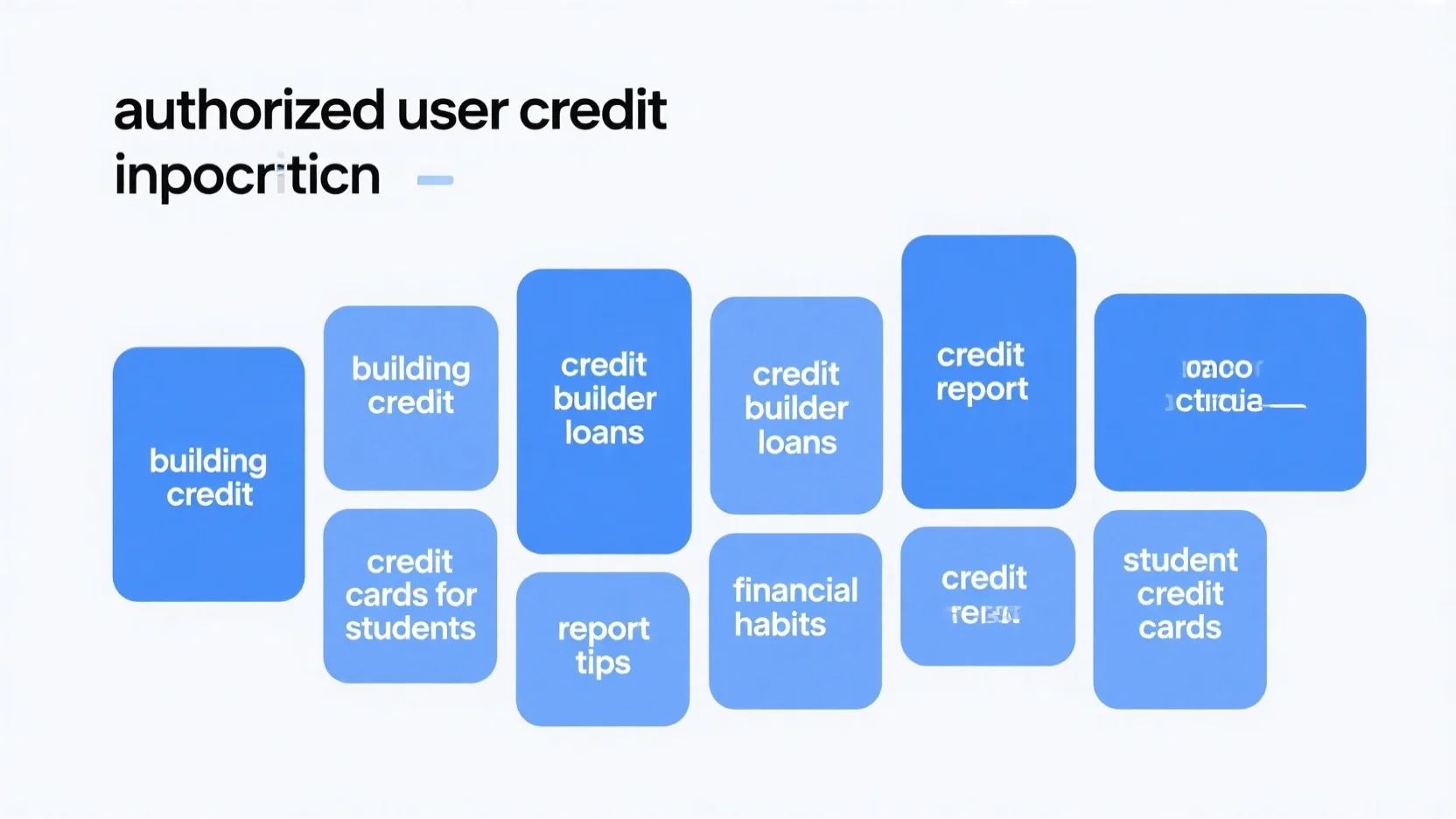
Building Credit for Students with No History

Image Source: pexels
Building credit without a history can feel hard, but it’s possible, especially with credit cards for students with no credit history. Starting early helps you get better financial chances later. Student credit cards are a good way to begin. Small, steady actions help you build strong credit over time.
Key Takeaways
- Starting credit early helps you get loans and rentals later.
- Student credit cards or being an authorized user can build credit fast.
- Pay bills on time and check your credit report often to keep a good score.
Why Building Credit as a Student Matters
Access to Financial Opportunities
Starting credit early helps unlock better financial chances. Lenders and landlords often check credit scores before approving loans or rentals. A good credit history shows you are responsible and trustworthy. This makes it easier to get a car loan, rent a home, or even buy a house later. Some employers may also look at credit reports when hiring to check reliability. Students who build credit now prepare for success in these areas.
Tip : A strong credit score can help students get higher credit limits and better card rewards.
Lower Interest Rates in the Future
Good credit history means lower interest rates on loans and cards. Lenders give better rates to people with good credit, saving money over time. For example, someone with great credit might pay much less on a car loan than someone with bad credit. Lower rates also make it easier to pay off debt faster, leaving more money for other goals.
Note : Lower interest rates mean smaller monthly payments, reducing money worries.
Building a Strong Financial Foundation
Building credit as a student creates a base for lifelong money health. This includes learning to budget, save, and understand credit. Students who practice these skills manage money better, feel less stressed, and become more independent. They also set smart goals and make better choices about loans and investments.
- Better Money Management: Students learn to plan spending and save wisely.
- Reduced Financial Stress : Good choices help avoid big debt problems.
- Increased Financial Independence : Handling credit builds self-reliance.
- Improved Decision Making : Knowing about credit leads to smarter money moves.
Reminder : A strong financial base helps with long-term success and stability.
Actionable Steps to Start Building Credit
Become an Authorized User on a Family Member’s Credit Card
Students can build credit by joining a family member’s credit card. This method has several advantages:
- Easy access to credit: Students can use the card without applying themselves.
- Build credit quickly : If the main cardholder pays on time, the student benefits.
- Track family spending and earn rewards : Shared accounts help track expenses and earn rewards together.
But there are risks. If the main cardholder misses payments, both credit scores drop. Also, the main cardholder is responsible for all charges made. Students should talk about rules and responsibilities before starting.
Open Credit Cards for Students with No Credit History
Student credit cards are made to help young people start credit. These cards usually have smaller limits and simple requirements. To qualify, students may need:
| Requirement | Description |
|---|---|
| Proof of Income | Show steady income or have someone co-sign. |
| Co-signer | A co-signer over 21 with income may be needed. |
| Proof of Enrollment | Provide proof of being in college or university. |
These cards are a great way for students to begin building credit.
Consider a Secured Credit Card
Secured credit cards are another option for students with no credit. These cards need a cash deposit, which becomes the credit limit. They work like regular cards and report activity to credit bureaus. Paying on time and keeping balances low helps build good credit. Over time, students can qualify for unsecured cards with higher limits.
Use a Credit-Builder Loan
A credit-builder loan is a special way to build credit. Borrowers make monthly payments into a savings account. At the end, they get the money back. Payments are reported to credit bureaus, improving credit scores. Loan amounts are usually $300 to $1,000, with terms of six to 24 months. Paying on time is very important since it affects 35% of a FICO® Score.
Report Rent and Utility Payments to Credit Bureaus
Students can also improve credit by reporting rent and utility payments. Services like Experian Boost and RentReporter send these payments to credit bureaus. Paying on time regularly can raise credit scores. Students should check these services or ask landlords about reporting options.
Tip : Using these steps with good money habits helps grow credit steadily.
Tips for Keeping Good Credit Habits
Pay Bills on Time
Always pay bills when they are due. Late payments hurt credit scores and cost extra money. Missing a payment by over 30 days can cause:
- Lower credit scores.
- Late fees up to $40 for the first missed bill.
- Higher interest rates if promotional APRs are lost.
Set reminders or use auto-pay to avoid missing payments. Paying on time shows lenders you are reliable and builds trust.
Use Only a Small Amount of Credit
Credit utilization means how much credit you use out of what’s available. Keeping this low helps your credit score. Experts suggest:
- Using less than 30% of your credit limit.
- Staying under 10%, with 1% being the best.
Using too much credit lowers scores because it increases debt. Watch your spending and pay off balances often to keep this low.
Don’t Apply for Too Many Credit Cards
Opening many credit accounts quickly can lower your score. Each application adds a hard inquiry, which drops scores for a short time. Focus on using one or two cards wisely instead of getting more. This helps you avoid risks and build strong credit.
Check Your Credit Report Often
Look at your credit report to catch mistakes that hurt scores. Common errors include:
- Wrong personal details like your name or address.
- Accounts that aren’t yours.
- Repeated debts or wrong balances.
If you find mistakes, contact the credit bureau and lender to fix them. Correcting errors keeps your credit score accurate and avoids problems later.
Spend Money Wisely
Smart spending is important for good credit. Only buy what you can pay off each month. Spending too much raises balances, making payments harder and increasing credit use. Budgeting and tracking spending help you avoid debt and stay in control.
Tip : Smart spending and tools like student credit cards can grow credit well.
Common Mistakes to Avoid
Missing Payments
Skipping payments can hurt your credit score and cause stress. Many students don’t realize how much late payments can affect them:
- Missing one payment might not seem bad, but repeated ones lower scores a lot.
- Late fees can be as high as $40 for the first missed bill.
- You might lose special low interest rates, making balances cost more.
Paying bills on time is very important for good credit. Use auto-pay or set reminders to help you stay organized.
Tip : Always pay on time to avoid fees and credit problems.
Overspending on Credit Cards
Spending too much on credit cards is a common mistake. Using a lot of your credit limit can hurt your score. Try to use less than 30% of your limit and pay off the full balance every month.
Buying things on impulse can lead to big bills and money trouble. Make a budget and track what you spend to avoid overspending.
Reminder : Smart spending keeps your finances safe in the long run.
Ignoring Your Credit Report
Some students forget to check their credit reports and miss fixing errors. Mistakes like wrong account info or charges you didn’t make can hurt your score. Checking your report often helps you find and fix these problems.
You can get a free credit report once a year from major bureaus. Use this to keep an eye on your financial health.
Note : Checking your credit report protects your score from mistakes.
Closing Credit Accounts Too Soon
Closing credit accounts might seem smart, but it can hurt your score. Credit history length is important, and closing old accounts shortens it. It also lowers your total credit, which can raise your credit usage.
Keep old accounts open, even if you don’t use them often. This helps you keep a longer credit history and better credit utilization.
Advice : Leave old accounts open to build strong credit over time.
Building credit needs time, but small steps make a big difference. Students who begin early and stay focused build a solid money future. Smart credit habits open doors to lower costs and better choices.
Reminder : Stay patient and keep trying. Good decisions now lead to success later. 🌟
FAQ
How long does it take to build a good credit score?
It usually takes 6-12 months of smart credit use. Be patient and stay consistent.
Tip : Pay bills on time and start early to improve faster.
Can students build credit without a credit card?
Yes, students can build credit in other ways. They can report rent payments, use credit-builder loans, or join family members’ credit cards as authorized users.
Note : If credit cards aren’t an option, try these methods instead.
Will checking my credit report hurt my score?
No, checking your own credit report won’t lower your score. It’s called a soft inquiry and is safe.
Reminder : Use free yearly credit reports to check for mistakes and track progress.
